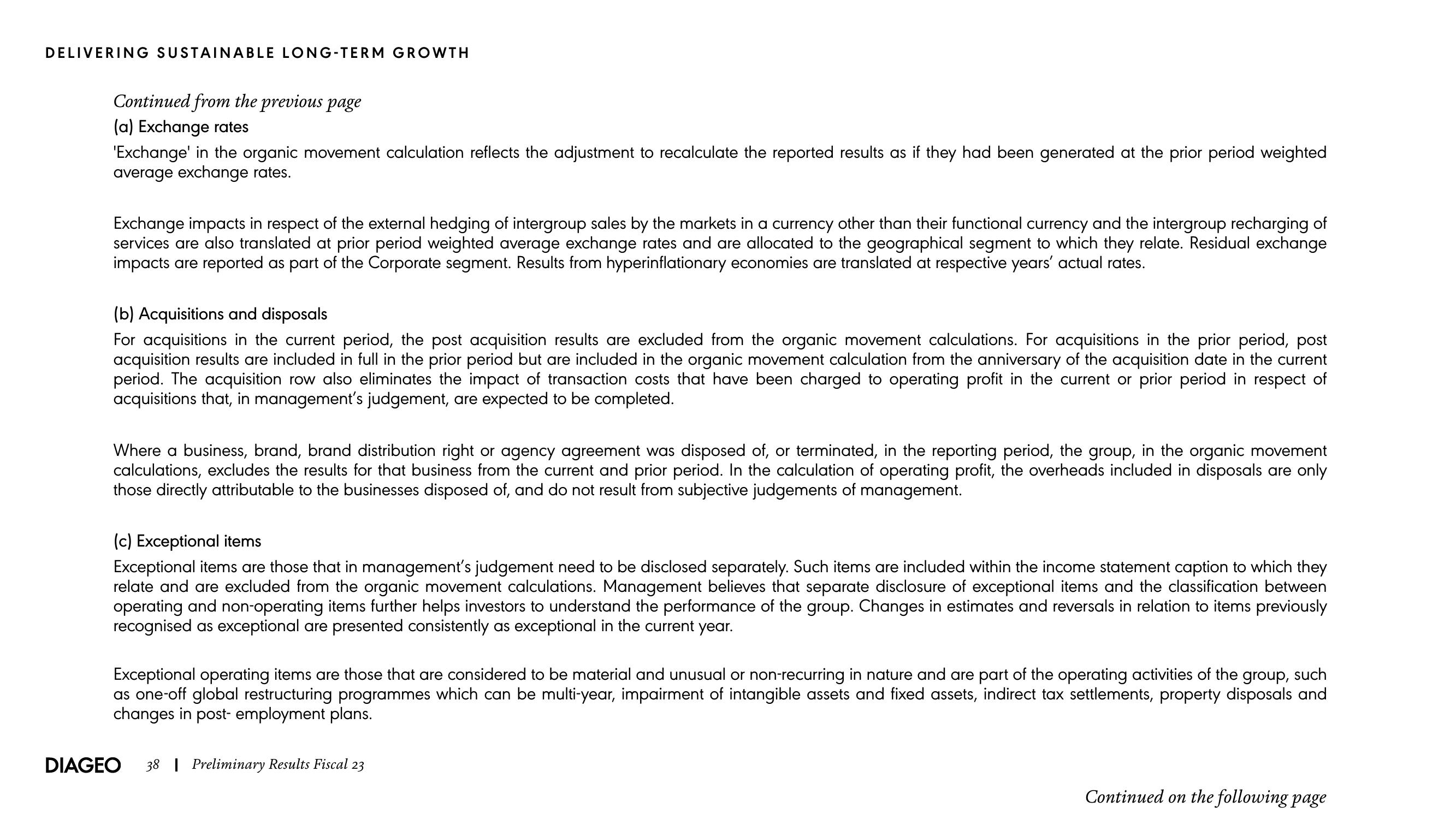Diageo Results Presentation Deck
DELIVERING SUSTAINABLE LONG-TERM GROWTH
Continued from the previous page
(a) Exchange rates
'Exchange' in the organic movement calculation reflects the adjustment to recalculate the reported results as if they had been generated at the prior period weighted
average exchange rates.
Exchange impacts in respect of the external hedging of intergroup sales by the markets in a currency other than their functional currency and the intergroup recharging of
services are also translated at prior period weighted average exchange rates and are allocated to the geographical segment to which they relate. Residual exchange
impacts are reported as part of the Corporate segment. Results from hyperinflationary economies are translated at respective years' actual rates.
(b) Acquisitions and disposals
the prior period, post
For acquisitions in the current period, the post acquisition results are excluded from the organic movement calculations. For acquisitions
acquisition results are included in full in the prior period but are included in the organic movement calculation from the anniversary of the acquisition date in the current
period. The acquisition row also eliminates the impact of transaction costs that have been charged to operating profit in the current or prior period in respect of
acquisitions that, in management's judgement, are expected to be completed.
Where a business, brand, brand distribution right or agency agreement was disposed of, or terminated, in the reporting period, the group, in the organic movement
calculations, excludes the results for that business from the current and prior period. In the calculation of operating profit, the overheads included in disposals are only
those directly attributable to the businesses disposed of, and do not result from subjective judgements of management.
(c) Exceptional items
Exceptional items are those that in management's judgement need to be disclosed separately. Such items are included within the income statement caption to which they
relate and are excluded from the organic movement calculations. Management believes that separate disclosure of exceptional items and the classification between
operating and non-operating items further helps investors to understand the performance of the group. Changes in estimates and reversals in relation to items previously
recognised as exceptional are presented consistently as exceptional in the current year.
Exceptional operating items are those that are considered to be material and unusual or non-recurring in nature and are part of the operating activities of the group, such
as one-off global restructuring programmes which can be multi-year, impairment of intangible assets and fixed assets, indirect tax settlements, property disposals and
changes in post- employment plans.
DIAGEO 38 Preliminary Results Fiscal 23
Continued on the following pageView entire presentation